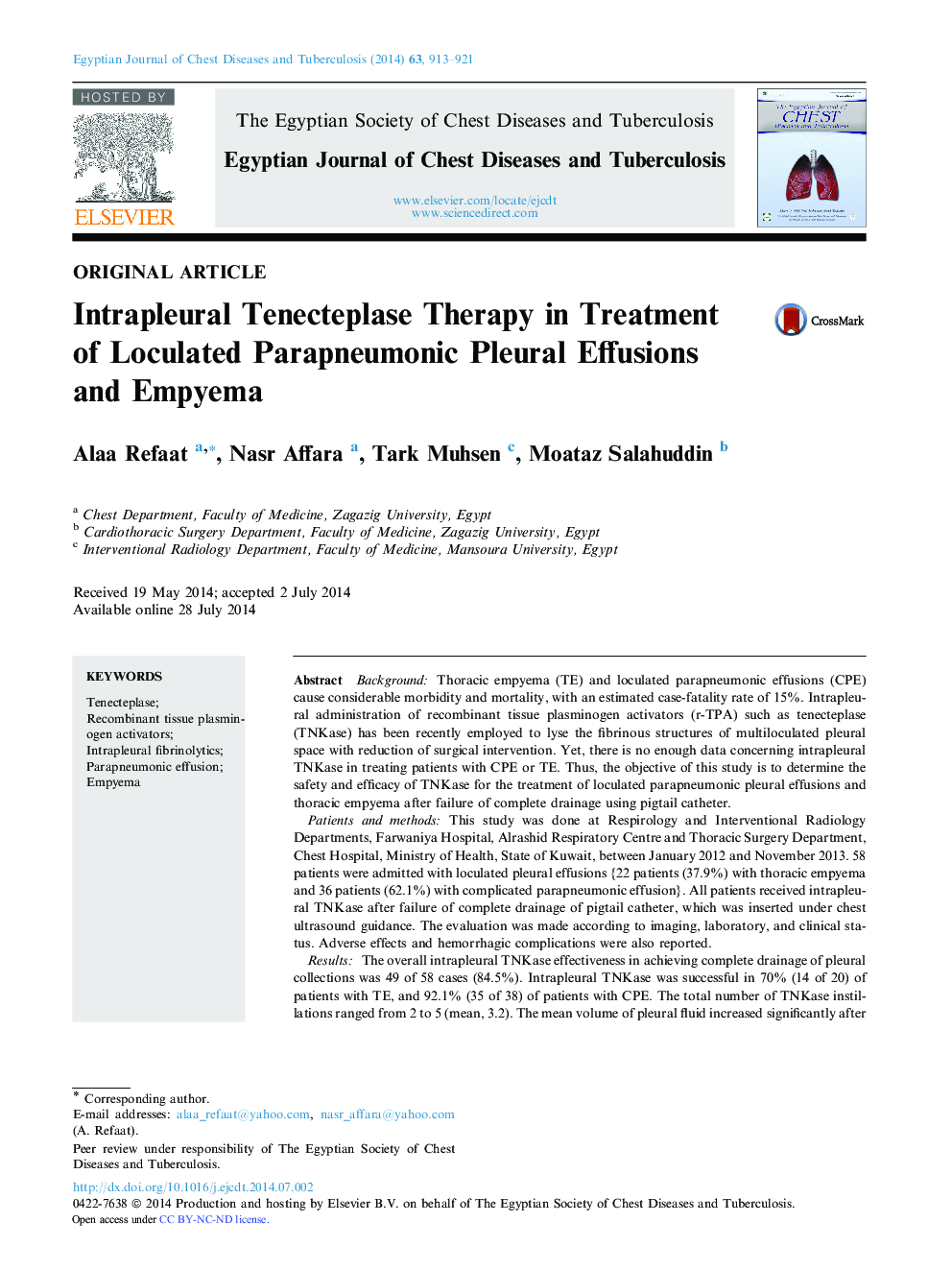| Article ID | Journal | Published Year | Pages | File Type |
|---|---|---|---|---|
| 3400230 | Egyptian Journal of Chest Diseases and Tuberculosis | 2014 | 9 Pages |
BackgroundThoracic empyema (TE) and loculated parapneumonic effusions (CPE) cause considerable morbidity and mortality, with an estimated case-fatality rate of 15%. Intrapleural administration of recombinant tissue plasminogen activators (r-TPA) such as tenecteplase (TNKase) has been recently employed to lyse the fibrinous structures of multiloculated pleural space with reduction of surgical intervention. Yet, there is no enough data concerning intrapleural TNKase in treating patients with CPE or TE. Thus, the objective of this study is to determine the safety and efficacy of TNKase for the treatment of loculated parapneumonic pleural effusions and thoracic empyema after failure of complete drainage using pigtail catheter.Patients and methodsThis study was done at Respirology and Interventional Radiology Departments, Farwaniya Hospital, Alrashid Respiratory Centre and Thoracic Surgery Department, Chest Hospital, Ministry of Health, State of Kuwait, between January 2012 and November 2013. 58 patients were admitted with loculated pleural effusions {22 patients (37.9%) with thoracic empyema and 36 patients (62.1%) with complicated parapneumonic effusion}. All patients received intrapleural TNKase after failure of complete drainage of pigtail catheter, which was inserted under chest ultrasound guidance. The evaluation was made according to imaging, laboratory, and clinical status. Adverse effects and hemorrhagic complications were also reported.ResultsThe overall intrapleural TNKase effectiveness in achieving complete drainage of pleural collections was 49 of 58 cases (84.5%). Intrapleural TNKase was successful in 70% (14 of 20) of patients with TE, and 92.1% (35 of 38) of patients with CPE. The total number of TNKase instillations ranged from 2 to 5 (mean, 3.2). The mean volume of pleural fluid increased significantly after TNKase administration (P < 0.001). White blood cell count (WBC) and C-reactive protein (CRP) were significantly improved after TNKase instillations (both P < 0.05). Complications observed were mild and local bleeding occurred in only 4 patients (6.9%).ConclusionIntrapleural TNKase is an effective therapy in improving drainage of loculated CPE and TE not drained with pigtail catheters alone and can prevent surgical interventions. Intrapleural TNKase is well tolerated with infrequent adverse events.
